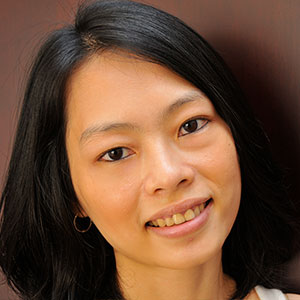The decision of national laureate Datuk A. Samad Said, fondly known as Pak Samad, entering the Democratic Action Party (DAP) doesn’t come as a surprise for me.
But it somewhat disappoints me.
I recall my conversation with Pak Samad in 2013 when he was the co-chair of Bersih 2.0. I remember vividly the moment he stepped into the cafe; right away, he received “celebrity-style” service from the staff. I am sure it is not because of his notable beard and moustache. Pak Samad has his own charm and endearing qualities that make him approachable for everyone.
During our conversation, Pak Samad expressed his “affection” for DAP. I remembered how he lauded DAP and said that for him, DAP was the best “model” to represent the future of Malaysia in term of its clear policies.
Last week, Pak Samad officially joined DAP. His inclusion in DAP has received mixed reactions.
For DAP leaders and members especially, it was a moment to celebrate as Pak Samad’s membership could attract more races, especially the Malays, to the Chinese-majority DAP. Moreover, it is an added advantage to DAP in view of the current internal tussle in the Pan-Malaysian Islamic Party (PAS).
However, I have a different take on this.
In the past decade or so, the sphere of political activism in the country has grown tremendously. The involvement of Malaysians, especially the young people, in activism has been gaining attention in and out of Malaysia.
Today, activists are receiving more attention than before. They are seen as role models for many and, at times, heros. At the same time, some activists have turned their sights to politics in view of unprecedented political openings in the country.
Prior to his involvement with the Bersih movement, Pak Samad was actively involved in advocating the abolition of teaching science and mathematics in English under the umbrella of Gerakan Mansuhkan PPSMI (GMP). He is also the chair for Teoh Beng Hock Trust for Democracy and patron for Negara-ku.
It is his co-chair role in Bersih 2.0 that has put him in the centre of public attention.
He is an iconic figure, and that is exactly why the role of Pak Samad is momentous for the advancement of activism in the country.
For example, he played an important role as the “pacifier” in the series of protests that took place in front of Datuk Ambiga Sreenevasan’s house. The protests were carried out to show discontent over her leadership in Bersih, which was seen to have “racial and religious” connotations.
While Malaysian NGOs have grown and consolidated their operations over the years, it remains a fact that there are many issues and problems such as the leadership.
With the growing maturity of Malaysians, many are more attracted to non-partisan efforts in championing justice, truth, freedom and the dignity of the human spirit for the betterment of the country.
An undisputed giant of democracy like Pak Samad could definitely help in terms of mobilisation and creating awareness among the people at the grassroots level against any form of injustice in the country.
Pak Samad is an elderly man of wisdom. I do salute what Pak Samad is fighting for, but his membership in DAP is nevertheless a big loss to the non-partisan political activism that has just started gaining ground in the country. – June 15, 2015.
* This is the personal opinion of the writer or publication and does not necessarily represent the views of The Malaysian Insider.


Comments
Please refrain from nicknames or comments of a racist, sexist, personal, vulgar or derogatory nature, or you may risk being blocked from commenting in our website. We encourage commenters to use their real names as their username. As comments are moderated, they may not appear immediately or even on the same day you posted them. We also reserve the right to delete off-topic comments